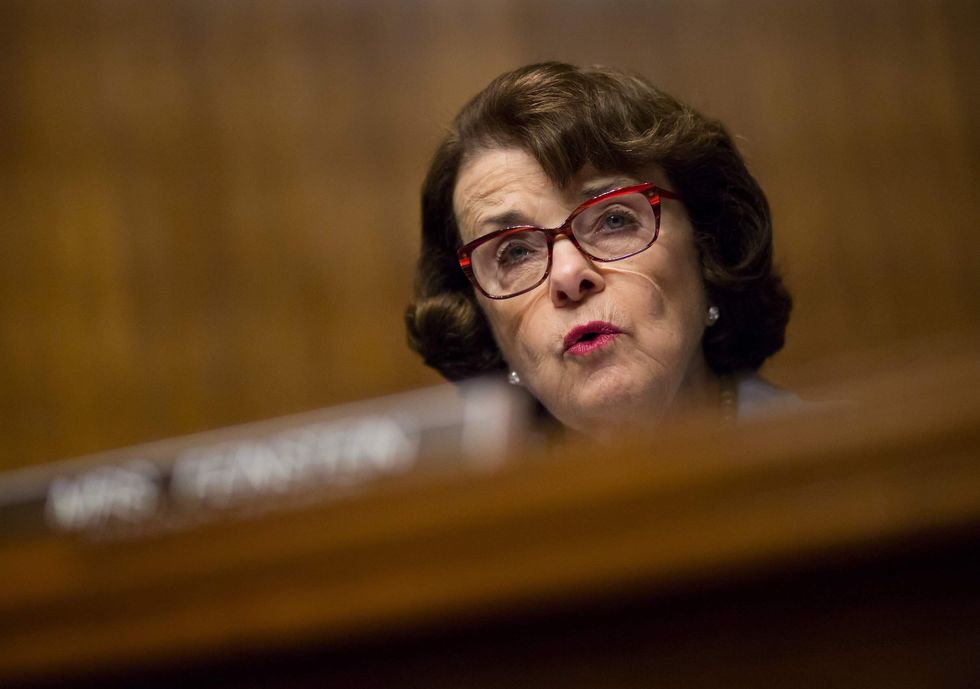
Senate Judiciary member Sen. Sen. Dianne Feinstein (D-CA) questions FBI Director James Comey on May 3 during an oversight hearing on the FBI on Capitol Hill in Washington, D.C. (Eric Thayer/Getty Images)

According to CNBC, Sen. Dianne Feinstein (D-Calif.) let slip during a Senate Judiciary Committee oversight hearing on Wednesday that the government paid a hacker $900,000 to break into the iPhone of Syed Farook.
Farook killed 14 people and wounded 22 more when he and his wife opened fire on civilians in San Bernardino, California, in December 2015.
"I was so struck when San Bernardino happened and you made overtures to allow that device to be opened, and then the FBI had to spend $900,000 to hack it open," Feinstein said while questioning FBI Director James Comey. "And as I subsequently learned of some of the reason for it, there were good reasons to get into that device."
Comey hinted at a ballpark figure last year, saying that the hacker — the identity of whom is being kept secret by the FBI — would be paid more than Comey would make during his remaining seven years in his position. FBI Directors make between $121K to $131K a year.
.This sum of money is one of two pieces of information currently being sought after in a lawsuit by The Associated Press and other news organizations, as is the identity of the hacker (or hackers) the government paid for the service. The information is being sought under the Freedom of Information Act, in a lawsuit claiming that “there is no lawful basis” for the FBI to keep this information a secret.
The FBI hired this hacker after cutting short a court battle with Apple Inc. in March 2016, in which a California judge issued a court order for Apple to create a back door to iPhones by which the FBI could gain access to the mobile devices. Apple had refused to do this, with Apple CEO Tim Cook calling the request for this iPhone master key "too dangerous to create."
This refusal by Apple began a fierce debate on how much power the government should have when it comes to accessing digital communications.